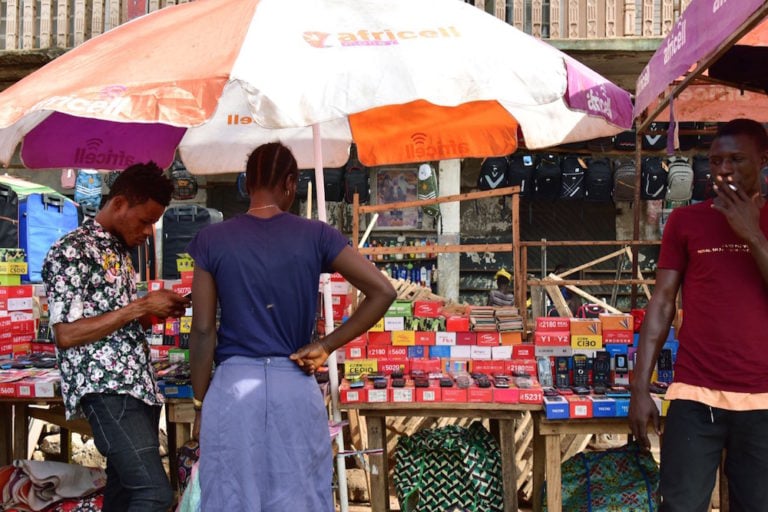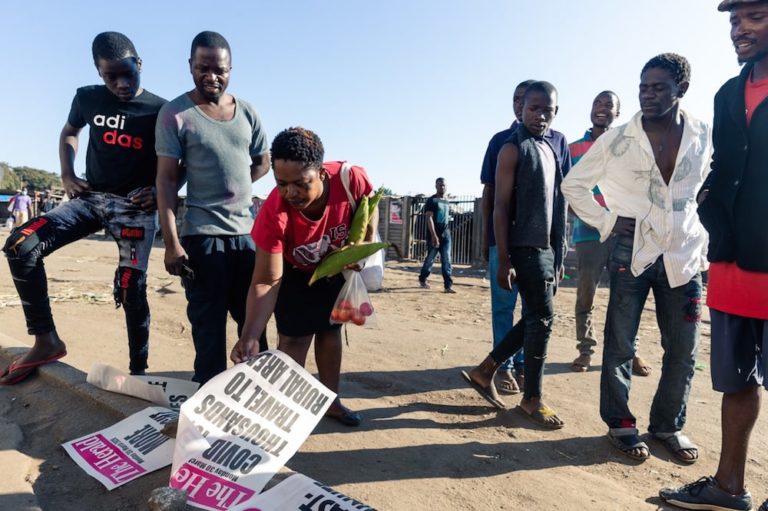(MISA/IFEX) – A second television crew from the South African Broadcasting Corporation (SABC) has briefly been detained in northern Namibia’s Caprivi region while reporting on the tension in that area, reports the “Namibian” newspaper. It is the second SABC crew to be detained in that area in less than a week. **Updates IFEX alert of […]
(MISA/IFEX) – A second television crew from the South African Broadcasting
Corporation (SABC) has briefly been detained in northern Namibia’s Caprivi
region while reporting on the tension in that area, reports the “Namibian”
newspaper. It is the second SABC crew to be detained in that area in less
than a week.
**Updates IFEX alert of 23 November 1998**
The two television crew members, journalist Jessica Pitchford and camera
operator Dudley Saunders, were held by security forces on 24 November 1998
in Linyata after they apparently strayed into a restricted area. The two
were part of a group of foreign and local journalists invited to the Caprivi
region by Namibia’s Information and Broadcasting Ministry in the wake of
increased military activity in the area following reports of an alleged
secessionist plot. Hundreds of people have also fled the area into
neighbouring Botswana citing fears of military reprisals against them.
During the Linyata tour, Pitchford and Saunders reportedly left the group to
conduct an interview of their own and returned only after the rest of the
group, including Broadcasting Minister Ben Amathila, had left. While
searching for the main group the two strayed into an apparent restricted
area where paramilitary troops were encamped. They were detained for two
hours while Special Field Force members tried to determine whether or not
they were journalists.
Pitchford told the “Namibian” there were no signs indicating that the area
was restricted and that when they produced their work permits, media
accreditation and other documents they were told point blank that the
paramilitary officials were not from the Immigration Department and were
thus not interested in work permits.
The two were eventually escorted in their own vehicle to a military facility
near Katima Mulilo, where they were released after their escorts were told
that they were there at the invitation of the Ministry. Amathila later
commented that the two had been detained only to ascertain who they were as
they only had passports and no other documents.
Meanwhile, the SABC has raised fears that the video footage previously
seized from two other journalists detained in northern Namibia may be
censored. The videos, along with equipment, were seized shortly after the
two-man crew, journalist Montlenyane Diphoko and camera operator Thabo
Modise, were detained at Katima Mulilo. They were held overnight for several
hours and released without their passports, equipment and footage. SABC’s
Television News Assignment editor, Gary Alfonso, told the “Namibian” that it
was only after intervention from South Africa’s Deputy President, Thabo
Mbeki, that the equipment and passports were returned allowing the two to
return to South Africa. Alfonso further told the newspaper that the footage
was being scrutinised by the Namibian authorities with a view to possible
censorship if it contained material reflecting “negatively” on the Namibian
government. The footage consists of interviews conducted with villagers in
the Katima Mulilo area shortly before the journalists were arrested.
When approached by the “Namibian”, Namibia’s Ministry of Home Affairs
confirmed that it still held the video footage taken by the two media
workers. Spokesperson Mikka Asino told the newspaper that the footage would
be returned to the SABC once it had been scrutinised by what he referred to
as the “security establishment”. Asino said that because the two journalists
who took the footage were not then in possession of work permits in
accordance with the Immigration Act, it raised “suspicions” concerning their
intentions. He emphasised that Namibia had “nothing to hide”, and that the
government had even invited journalists to Caprivi to get first-hand
information about the situation there.
In a separate but related incident, the “Namibian” reports that radio
listeners in the North have been complaining about restrictions placed on
their freedom of speech by the state-owned Namibia Broadcasting Corporation
(NBC). According to the paper, people phoning the NBC’s Oshiwambo-language
programme Ewi lyaManguluka (which translates as “free voice”) since early
November have been told not to express certain views on the situation in the
Caprivi. At one point, the paper reports, callers were
barred from discussing the issue altogether. Then, from 19 November, only
callers opposing secession were allowed to participate, while others were
excluded.
When contacted by MISA, NBC radio controller Penny Ukunde confirmed that
producers had been informed that they should ensure that callers acted
“responsibly” when participating in programmes. However, she denied that
this had resulted in people being prevented from expressing certain views on
the situation in Caprivi.
Background Information
The two SABC journalists, who have since left the country, entered Namibia
via Botswana on 18 November. Though they failed to announce up front that
they were journalists, they clearly stipulated to immigration officials that
they were in the country for “professional/business” reasons. After filming
and interviewing villages in the Katima Mulilo area, they were approached by
a police officer who asked them about their business. When told they were
doing a story, the police officer contacted immigration to ask why the two
men had been allowed through. The two were subsequently arrested and held
overnight for a few hours. The official explanation for their arrest was
that they were “doing a job in Namibia without a work permit or any media
accreditation.” Following their release they were granted temporary work
permits, but the two opted instead to cross back into Botswana, where they
were told by Botswana officials that Namibian intelligence officers had
followed them over and were “monitoring their movements.”


